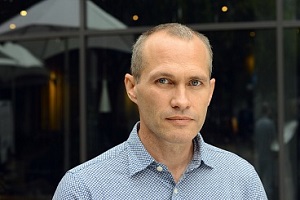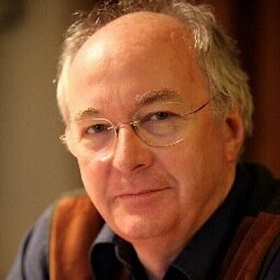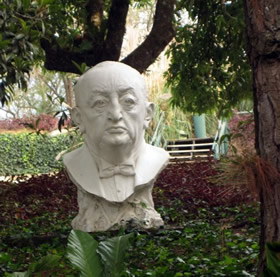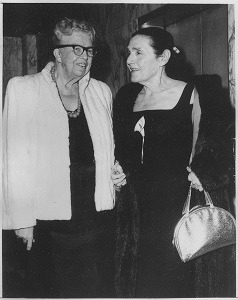De Amerikaanse schrijver David Vann werd geboren op 19 oktober 1966 op Adak Island, Alaska. Zie ook alle tags voor David Vann op dit blog.
Uit: Legend of a Suicide
“My mother gave birth on Adak Island, a small hunk of rock and snow far out on the Aleutian chain, at the edge of the Bering Sea. My father was serving two years as a dentist in the Navy; he had wanted Alaska because he liked hunting and fishing, but he obviously had not known about Adak at the time of his request. Had my mother known, she would have scratched out the request herself. Given enough information, my mother has never made the wrong choice.
So it was that she refused to have her sweltering, jaundiced baby yanked out of Adak’s underground naval hospital and thrown into the jet that sat waiting on the runway for more than six hours. Because my temperature was 105 degrees and still climbing, the doctors and my father recommended I be flown to the mainland, to a real hospital (no one on Adak survived even a mild heart attack while we were there — no one), but my mother refused. She was certain, with what my father always described as an animal, instinctive fear, that the moment I was borne aloft, I would perish. She placed me in an ordinary white bathtub filled with cold water, and there I survived. Flourished, even. My orange, blotchy skin gradually calmed to a healthy baby pink, my limbs unlocked, and I flailed my legs in the waters until she lifted me out and we both slept.
When my father had finished his sentence with the Navy, we moved to Ketchikan, an island in southeastern Alaska, where he bought a dental practice and, three years later, a fishing boat. The boat was a new twenty-three-foot Uniflite fiberglass cabin cruiser. Still wearing his dental smock beneath his jacket, he launched the boat late on a Friday afternoon as we cheered from shore. He slipped it into its stall in the docks, and the next morning he stood on the edge of those docks looking down thirty feet through clear, icy Alaskan water to where the Snow Goose sat like a white mirage on the rounded gray stones. My father had named it the Snow Goose because he had been filled with dreams of its white hull flying over the waves, but he had forgotten to put in the drain plugs the afternoon of the launching. Unlike my mother, he had neither eyes nor ears for matters below the surface.”

David Vann (Adak Island, 19 oktober 1966)
De Britse schrijver Philip Pullman werd geboren op 19 oktober 1946 in Norwich als zoon van een luchtmachtofficier. Zie ook mijn blog van 19 oktober 2010 en eveneens alle tags voor Philip Pullman op dit blog.
Uit: The Good Man Jesus and the Scoundrel Christ
“This is the story of Jesus and his brother Christ, of how they were born, of how they lived and of how one of them died. The death of the other is not part of the story.
As the world knows, their mother was called Mary. She was the daughter of Joachim and Anna, a rich, pious and elderly couple who had never had a child, much as they prayed for one. It was considered shameful that Joachim had never fathered any offspring, and he felt the shame keenly. Anna was just as unhappy. One day she saw a nest of sparrows in a laurel tree, and wept that even the birds and the beasts could produce young, when she could not.
Finally, however, possibly because of their fervent prayers, Anna conceived a child, and in due course she gave birth to a girl. Joachim and Anna vowed to dedicate her to the Lord God, so they took her to the temple and offered her to the high priest Zacharias, who kissed her and blessed her and took her into his care.
Zacharias nurtured the child like a dove, and she danced for the Lord, and everyone loved her for her grace and simplicity.
But she grew as every other girl did, and when she was twelve years old the priests of the temple realised that before long she would begin to bleed every month. That, of course, would pollute the holy place. What could they do? They had taken charge of her; they couldn’t simply throw her out.
So Zacharias prayed, and an angel told him what to do. They should find a husband for Mary, but he should be a good deal older, a steady and experienced man. A widower would be ideal. The angel gave precise instructions, and promised a miracle to confirm the choice of the right man.“

Philip Pullman (Norwich, 19 oktober 1946)
De Guatemalteekse schrijver Miguel Ángel Asturias werd geboren op 19 oktober 1899 in Guatemala-Stad. Zie ook mijn blog van 19 oktober 2010 en ook alle tags voor Miguel Ángel Asturias op dit blog.
Uit: Der Herr President (Vertaald door Jacob Bachmann)
„Leuchte, bläulich Feuer, scheußlicher Teufel! Noch brausten die Ohren vom Klang des Abendläutens; zwiefaches Unbehagen des Lichts im Dunkel und des Dunkels im Licht. Leuchte, bläulich Feuer, scheußlicher Teufel, über der Fäulnis! Leuchte, bläulich Feuer, über der Fäulnis! Scheußlicher Teufel! Leuchte, leuchte, bläulich Feuer… bläulich… leuchte… leuchte… leuchte, bläulich Feuer… leuchte, bläulich.
Verloren im Schatten der eisigen Kathedrale, schleppten sich die Bettler durch die Kneipen am Markt zur Plaza de Armas, Straßen entlang, die so weit waren wie Meere, in der Stadt, die langsam zurückblieb, einsam, allein.
Wie die Sterne, fanden auch die Bettler sich bei Einbruch der Nacht zusammen, um vor der Pforte des Herrn zu schlafen. Nur das Elend verband sie miteinander. Man verleumdete den anderen, beleidigte sich gegenseitig zähneknirschend mit dem Groll von Feinden, die Streit suchen. Oſt stießen sie sich in die Rippen oder wälzten sich miteinander kämpfend auf dem Boden, bespuckten sich und bissen den anderen vor Wut. Diese Familie der Ausgestoßenen fand je weder Ruhe noch Vertrauen. Sie legten sich einzeln nieder, ohne sich auszuziehen, und schliefen wie die Diebe, den Kopf auf ihren Habseligkeiten: Fleischabfällen, ausgetragenen Schuhen, Kerzenstummeln, einer Handvoll in Zeitungen gewickeltem gekochtem Reis, Apfelsinen, schrumpligen Früchten.
Auf den Treppen vor der Pforte sah man sie zur Mauer gedreht ihr Geld zählen, die Nickelmünzen zwischen die Zähne nehmen, um sie auf ihre Echtheit zu prüfen, Selbstgespräche führen, Mund- und Kriegsvorräte durchsehen, denn kriegerisch zogen sie durch die Straßen, mit Steinen und Skapulieren bewaffnet, und im Verborgenen Reste trockenen Brotes verschlingen
Dass sie sich je untereinander geholfen hätten, ist nicht bekannt; geizig wie alle Bettler mit den Abfällen, gaben sie eher den Hunden etwas als ihren Leidensgefährten. Nachdem sie gegessen hatten, legten sie sich mit dem Geld in einem am Gurt befestigten, siebenfach verknüpften Taschentuch auf den Boden und fielen in bewegte, traurige und beengende Träume, die von hungrigen Schweinen, mageren Frauen, schwächlichen Hunden und Wagenrädern belebt waren oder von gespensterhaſten Patern, die im beinernen Mondlicht der fröstelnden Nacht in die Kathedrale schritten, um eine Totenmesse zu lesen.“

Miguel Ángel Asturias (19 oktober 1899 – 9 juni 1974)
Borstbeeld in museum Santo Domingo del Cerro, Antigua
De Amerikaanse schrijfster Fannie Hurst werd geboren op 19 oktober 1889 in Hamilton, Ohio. Zie ook alle tags voor Fanny Hurst op dit blog.
Uit: Every Soul Hath Its Song
“With the oldest gesture of the shod age Mrs. Binswanger dived into her work-basket, withdrew with a sock, inserted her five fingers into the foot, and fell to scanning it this way and that with a furrow between her eyes.
“Ray, go in and tell your sister she should come out of her room and stop that crying nonsense. I tell you it’s easier we should all go to Europe, even if we have to swim across, than every evening we should have spoilt for us.”
Ray Binswanger rose out of her shoulders, her eyes dazed with print, then collapsed again to the pages of her book.
“Let her cry, mamma.”
“It’s not so nice, Ray, you should treat your sister like that.”
“Can I help it, mamma, that all of a sudden she gets Europe on the brain? You never heard me even holler for Arverne, much less Europe, as long as the boats were running for Brighton, did you, mom?”
“She thinks, Ray, in Europe it’s a finer education for you both. She ain’t all wrong the way she hates you should run to Brighton with them little snips.”
“Just the same you never heard me nag for trips. The going’s too good at home. Did you, pop, ever hear me nag?”
“Ja, it’s a lot your papa worries about what’s what! Look at him there behind his paper, like it was a law he had to read every word! Ray, go get me my glasses under the clock and call in your sister. Them novels will keep. Mind me when I talk, Ray!”

Fannie Hurst (19 oktober 1889 – 23 februari 1968)
Hier met Fannie Eleanor Roosevelt (links) in 1962.
De Engelse dichter, schrijver en essayist James Leigh Hunt werd geboren op 19 oktober 1784 in Southgate, Middlesex. Zie ook mijn blog van 19 oktober 2010 en ook alle tags voor Leigh Hunt op dit blog.
Walcheren Expedition
Ye brave, enduring Englishmen,
Who dash through fire and flood,
And spend with equal thoughtlessness
Your money and your blood,
I sing of that black season,
Which all true hearts deplore,
When ye lay,
Night and day,
Upon Walcheren’s swampy shore.
‘Twas in the summer’s sunshine
Your mighty host set sail,
With valour in each longing heart
And vigour in the gale;
The Frenchman dropp’d his laughter,
The Fleming’s thoughts grew sore,
As ye came
In your fame
To the dark and swampy shore.
But foul delays encompass’d ye
More dang’rous than the foe,
As Antwerp’s town and its guarded fleet
Too well for Britons know;
One spot alone ye conquer’d
With hosts unknown of yore;
And your might
Day and night,
Lay still on the swampy shore.
In vain your dauntless mariners
Mourn’d ev’ry moment lost,
In vain your soldiers threw their eyes
In flame to the hostile coast;
The fire of gallant aspects
Was doom’d to be no more,
And your fame
Sunk with shame
In the dark and the swampy shore.
Ye died not in the triumphing
Of the battle-shaken flood,
Ye died not on the charging field
In the mingle of brave blood;
But ’twas in wasting fevers
Full three months and more,
Britons born,
Pierc’d with scorn,
Lay at rot on the swampy shore.
No ship came o’er to bring relief,
No orders came to save;
But DEATH stood there and never stirr’d,
Still counting for the grave.
They lay down, and they linger’d,
And died with feelings sore,
And the waves
Pierc’d their graves
Thro’ the dark and the swampy shore.
Oh England! Oh my Countrymen!
Ye ne’er shall thrive again,
Till freed from Councils obstinate
Of mercenary men.
So toll for the six thousand
Whose miseries are o’er,
Where the deep,
To their sleep,
Bemoans on the swampy shore.

Leigh Hunt (19 oktober 1784 – 28 augustus 1859)
The Funeral of Shelley door Louis Éduard Fournier, 1889
E.J. Trelawny, Leigh Hunt en Lord Byron kijken naar de verbranding van Shelley’s lichaam.
De Surinaamse schrijver Nardo Aluman (eig. Ronald Renardo Aloema) werd geboren in Christiaankondre op 19 oktober 1946. Zie ook alle tags voor Nardo Aluman op dit blog en eveneens mijn blog van 19 oktober 2010.
Uit: Ombadapo, het gezicht
“Dan gaat haar schoonzoon [naar de visval], het is al middag. Hé, daar ziet hij het hoofd dat aan de oude vrouw had toebehoord.
Alleen het hoofd. Het kijkt met grote ogen. Het is aan wal gekomen, op de oever van de kreek. Ah, alleen de huisdieren die van haar waren zitten op haar draagmand. Waarheen hun baas is gegaan weten ze niet. Op dat moment is [alleen] haar hoofd daar. Het kijkt met grote ogen. Alleen haar hoofd was achtergebleven. Toen bleef ze daar heel lang. Geen mens gaat kijken, haar dochter komt kijken. ‘Ginds is je moeder opgegeten door de watergeest’, zegt haar schoonzoon. Alleen het hoofd is daar op gindse plaats. Haar dochter gaat kijken. E, daar ligt het hoofd dat aan haar moeder had toebehoord. Dat voormalige hoofd is echter niet dood, het is levend, het kijkt met grote ogen. Daar bleef het een tijd lang, ze halen haar niet weg. Haar voormalige, huisdieren blijven daar aan de oever van de poel op de mand die van haar was geweest. Vervolgens blijft ze daar, drie dagen lang denkt het hoofd na. Maar het is niet dood. Het lichaam dat erbij hoorde is al lang [geleden] door de watergeest opgegeten. Toen had ze misschien gedacht – hoe ze weten waarover ze dacht is onbekend – ‘Wat zal ik zijn’, sprak dat voormalige hoofd. ‘Hoe zal ik zijn’. Vervolgens was het aan de hemel gaan staan. Zo had ze gezegd, in haar gedachten. ‘Nee’, zei ze, ‘het is beter als ik als Weyu Yumï [een sterrebeeld] ben. Laat ik naar boven gaan. Al zeggen de mensen “het gezicht” tegen me. Het oude hoofd zullen ze zeggen’. Daarom zegt men, als Weyu Yumë komt. Als men het oude hoofd zegt, wordt ze heel erg verlegen. Als men het gezicht zegt, wordt ze heel erg verlegen. Ze hoort het, want die mens is niet doodgegaan. Daarna is ze weggegaan. Vanuit gindse plaats is zij gevlogen als een ding dat naar de hemel kan vliegen. Naar ginds is zij gegaan, naar Gods ding [i.e. de hemel]. Ze heeft het echt gedaan, om vanaf dat moment een teken van de droge tijd te zijn. Kijk maar, als deze warmte komt, haar komst maakt het warm, zij geeft warmte. Dan pas is zij te zien, zeg ik, van daaruit [vanuit het oosten]. Dat is het, zo is het, het oude hoofd, het gezicht.”

Nardo Aluman (Christiaankondre, 19 oktober 1946)
Zie voor de Friedenspreis des deutschen Buchhandels ook mijn vorige blog van vandaag.
